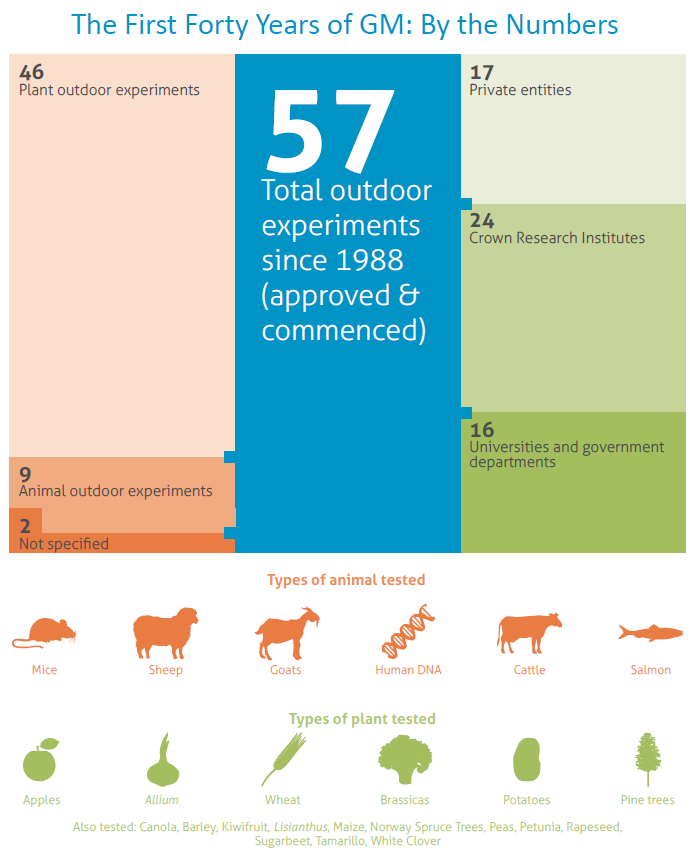Today the McGuinness Institute is pleased to announce the publication of An Overview of Genetic Modification in New Zealand 1973–2013: The first forty years, a report which forms part of the Institute’s flagship project, Project 2058. Forty years since the invention of genetic modification, the Institute felt it was important to reassess New Zealand’s approach to managing the risks of genetic modification. The report provides a comprehensive overview of policy development through four key eras: (1) the journey towards the Royal Commission, (2) the Royal Commission, (3) the response to the Royal Commission, and (4) the era of institutional change.
The report, which offers twelve detailed recommendations for the way forward, argues that the most risk-adverse solution is to close down New Zealand’s only two GM outdoor experiments on the basis that they create unnecessary public risk, with little to no public benefit.
Copies of the report are available for free download from the McGuinness Institute website, or you can purchase hard copies from our online store. For more, see our latest press release: It is time for New Zealand to revisit the genetic modification debate.
The report has been a considerable piece of work for the Institute, and builds on our previous work including two reports published in April 2008: The History of Genetic Modification in New Zealand, and The Review of the Forty-Nine Recommendations of the Royal Commission on Genetic Modification. Below is one of the report’s authors Renata Mokena-Lodge, with former intern Jeremy Todd, sorting through some 15 years worth of archive material.


